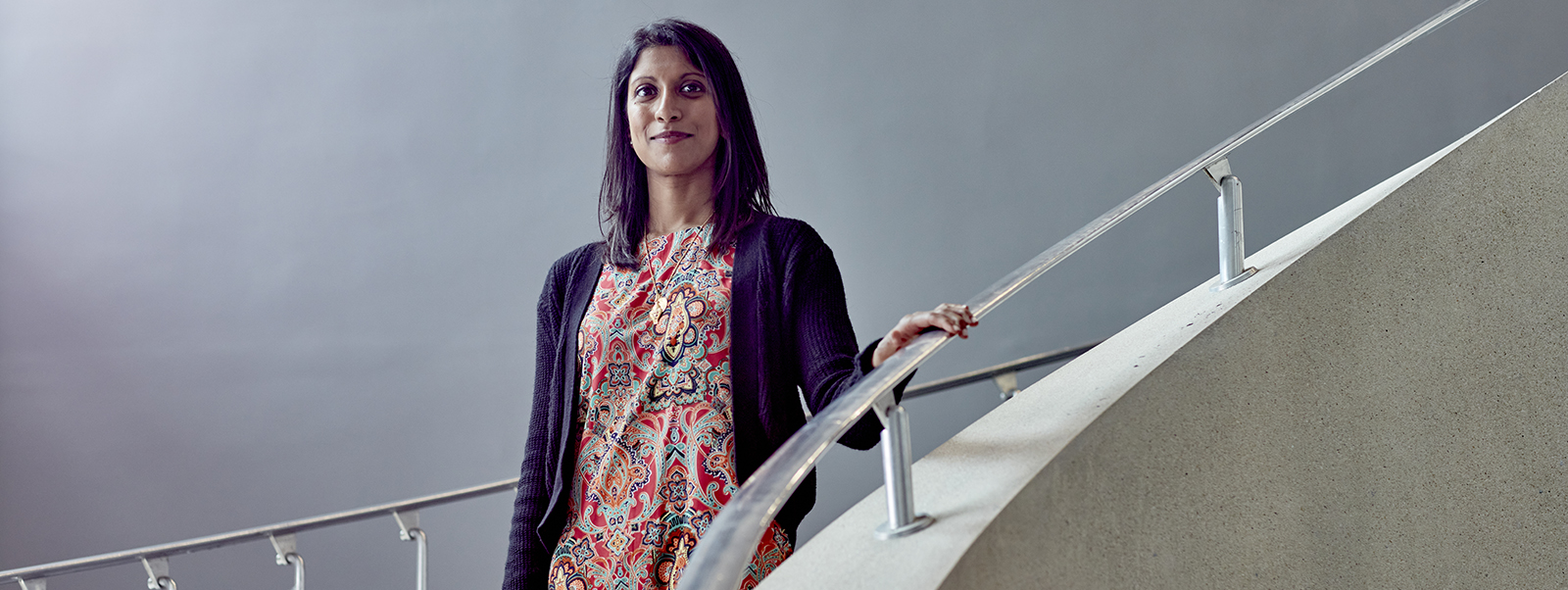Wednesday, 02 March 2022
Experts from the University of Nottingham have developed a protocol for clinicians around the world, which will help to close the gap between diagnosis and treatment of childhood cancer, and could increase the chance of survival from the disease.
Childhood cancer is the largest illness cause of death in children and young people globally, and is responsible for over one in five deaths among 0-15 year olds in the UK.
The overall five-year survival estimate in the UK is 84% across all childhood cancers, which is lower than other countries in Europe. One of the possible causes for this is a delay between patients presenting with their symptoms to a clinician, and receiving their diagnosis.
The new protocol, published in the BMJ, outlines the methods used by the experts in the Childhood Cancer Diagnosis study, to better understand the current diagnosis pathway of childhood cancer referrals and diagnosis and will look to determine the exact reasons for these delays in diagnostic pathways.
The two-year study, which is the first nation-wide study of its kind, is a collaborative project between experts at the University of Nottingham, and Children’s Cancer and Leukemia Group (CCLG) in Leicester and is funded by the National Institute of Health Research (NIHR) and CCLG.
Dr Shaarna Shanmugavadivel from the School of Medicine at the University, is leading the study together with Jo-Fen Liu, Professor Kavita Vedhara, Professor David Walker and Dr Shalini Ojha.
 Dr Shaarna Shanmugavadivel
Dr Shaarna Shanmugavadivel
She said: “In 2018, the WHO declared childhood cancer as a global disease burden. Their aim is to save an extra one million children’s lives through improving global survival rates to 60% by 2030.
“Early diagnosis plays a huge part in achieving this and we are really pleased to be able to share this protocol which we hope will allow other countries to understand the diagnostic pathways for their children and young people in order to really close the gap on childhood cancer outcomes both in the UK and globally.”
During the study, experts will use data from all childhood cancer treatment centres in the UK. Children and young people with a new diagnosis of cancer over a two-year period will be invited to participate, with data being collected at diagnosis and five years after diagnosis. Data will include demographic details, clinical symptoms, tumour location, stage and clinical risk group. Key diagnostic dates and referral routes will be collected to calculate the diagnostic intervals. At the five-year follow-up, data will be collected on refractory disease, relapse and one and five-year survival.
The data obtained will allow the experts to understand the current picture of childhood cancer diagnosis across the UK and identify factors associated with diagnostic delays. It will highlight areas with need for improvement where targeted public health interventions or larger policy changes could be implemented to enable earlier diagnosis.
Ashley Ball-Gamble, Chief Executive of CCLG, added: “As well as the potential impact on survival, delayed diagnosis of childhood cancers mean that children are likely to need more intense treatment to cure their disease, increasing the likelihood of long-term side effects, including disabling and life threatening side effects in later life.
Our ambition is to ensure that all children with cancer are diagnosed as quickly as possible, and this important study will help us to understand where the challenges are to achieving this, as well as building up a better picture of the key signs and symptoms that eventually lead to a diagnosis. We’ll be able to use this vital data to improve the pathway to diagnosis for children, and to raise awareness amongst both healthcare professionals and the general public.”
The full study can be found here.
Story credits
More information is available from Dr Shaarna Shanmugavadivel in the School of Medicine at the University of Nottingham at Dhurgsharna.Shanmugavadivel@nottingham.ac.uk
Notes to editors:
About the University of Nottingham
Ranked 97 in the world and 17th in the UK by the QS World University Rankings, the University of Nottingham is a founding member of Russell Group of research-intensive universities. Studying at the University of Nottingham is a life-changing experience, and we pride ourselves on unlocking the potential of our students. We have a pioneering spirit, expressed in the vision of our founder Sir Jesse Boot, which has seen us lead the way in establishing campuses in China and Malaysia - part of a globally connected network of education, research and industrial engagement.
Nottingham was crowned Sports University of the Year by The Times and Sunday Times Good University Guide 2024 – the third time it has been given the honour since 2018 – and by the Daily Mail University Guide 2024.
The university is among the best universities in the UK for the strength of our research, positioned seventh for research power in the UK according to REF 2021. The birthplace of discoveries such as MRI and ibuprofen, our innovations transform lives and tackle global problems such as sustainable food supplies, ending modern slavery, developing greener transport, and reducing reliance on fossil fuels.
The university is a major employer and industry partner - locally and globally - and our graduates are the third most targeted by the UK's top employers, according to The Graduate Market in 2024 report by High Fliers Research.
We lead the Universities for Nottingham initiative, in partnership with Nottingham Trent University, a pioneering collaboration between the city’s two world-class institutions to improve levels of prosperity, opportunity, sustainability, health and wellbeing for residents in the city and region we are proud to call home.
More news…